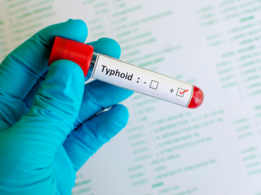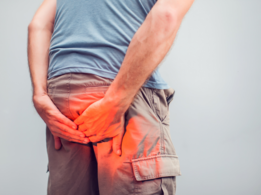01/6Do more COVID-19 vaccine side-effects mean higher protection?
)

Side-effects with the coronavirus jab such as fever, pain at the injection site, muscle pain, weakness- some pleasant, some unpleasant are strongly associated with immunization. While there's a high level of hesitancy and anxiety many have with getting the shot, it is also believed that getting side-effects has a correlation with the level of antibodies, ergo, the protection your vaccine promises. However, there are still many, who do not develop any sort of reaction or side-effects after getting the coronavirus vaccine shot, thus leaving many with an intriguing set of questions and wondering if at all they are protected. This is also a question especially daunting at a time when we are seeing a faster spurt of cases linked to the Delta variant, and reinfections as well.
Does vaccine-driven immunity rely on side-effects alone? Let's find out?
02/6Your side-effects signify an immune response
)

Side-effects signify an immune response when the system picks up on an intruder, or in this case, a fragment similar to the actual spike protein of coronavirus. Once this happens, WBCs are prompted into action and create inflammatory reactions, which more or less happen at the site of injection. Side-effects one gets with the vaccine dose also help the body remember the infectious strain in the future, and safeguard from future attacks. Therefore, more of the side-effects you get after the jab, the ones which are considered mild and temporary in nature are flu-like reactions and go away on its own.
Those who develop an unfortunate allergic reaction, however, do get side-effects that signal high level of inflammation when the body perceives a threat, or an ingredient in the vaccine make which they may be sensitive towards.
03/6However, there's no correlation between the side-effects and efficacy of the vaccine
)

Many people, who have been inoculated so far record mild to zero side-effects and can worry about how well the vaccine is protecting them, in comparison to someone who develops obvious side-effects. As intriguing as that can be, it's important to remember that side-effects signify a part of your immune response, and not the vaccine-driven immunity completely. In fact, there is no correlation between the two.
This is not only true because different people get varied side-effects, but vaccines work in a different manner to power up your immunity, and do not actually rely on the occurence, or the type of side-effects one gets. Those with a compromised immune system, put on medications may thus not be able to build complete or even partial immunity for that matter.
04/6What does it mean if you do not get side-effects?
)

Experiencing side-effects isn't a complete necessity. Neither is it bound to affect each and every vaccine beneficiary right now. Remember, our immune systems protect us, but are built very differently. Just like some people have a 'weaker' immunity in comparison to those who have a stronger natural defence, it can absolutely happen that one gets side-effects with the vaccine shot, while the other doesn't. The side-effects can also be different (sometimes be hardly felt or more intensely felt) basis someone's pain tolerance and sensitivity. As long as you are cautious about following all vaccine do's and don'ts, and aware, there's very little chance of failure.
In fact, data from leading trials have also established that post-vaccination symptoms can vary significantly for vaccinated people, so how you feel isn't a true litmus test to check for immunization. Nearly 73% of people enrolled in early clinical COVID-19 vaccine trials, for example, do not recount side-effects but were still tested to have ample antibodies.
05/6Side-effects and efficacy could also differ from vaccine to vaccine
)

While we do take inflammatory reactions and consequent side-effects from vaccines to be a general response of immunity, it's important to remember that different vaccines work in a different manner, so, there is no one specific standard of measuring what your vaccine side-effects could tell you. For example, clinical inferences from the use of Covaxin and Covishield vaccines in our country have pointed out that while the former is associated with fewer side-effects than the latter, the level of immunity granted is still the same as of the other, and similar is also the case with other approved 21 vaccines in the world.
Therefore, while side-effects can give you a sneak peek of your vaccine working as it should be, it cannot be taken as a definitive measure alone of the protection you get with the vaccine, and hence, shouldn't be a reason to worry.
06/6Can antibody tests help determine the level of protection?
)

With more relevant findings of waning immunity and breakthrough cases reported even with vaccination, many have taken to getting antibody testing done. While the demand has definitely surged, the reliance on these tests alone won't offer assurance enough that a person has developed immunity after being vaccinated against COVID-19, especially in the first two weeks after receiving the jab.
As experts have pointed out, it can be common that antibody tests do not pick up markers of vaccine-driven immunity and lead to faulty results. More so, the antibody levels you do have aren't always the accurate measure. It can happen that a person doesn't build up a desirable level of antibodies (due to preconditions, frail immunity) but still have some level of protection against the pathogen.












































































![[New!] Level 4 - 30 minute tempo fat-burning!
[New!] Level 4 - 30 minute tempo fat-burning!](https://static.toiimg.com/thumb/79327298.cms?width=147&height=86)













closecomments
SIGN IN WITH
FacebookGoogleEmail